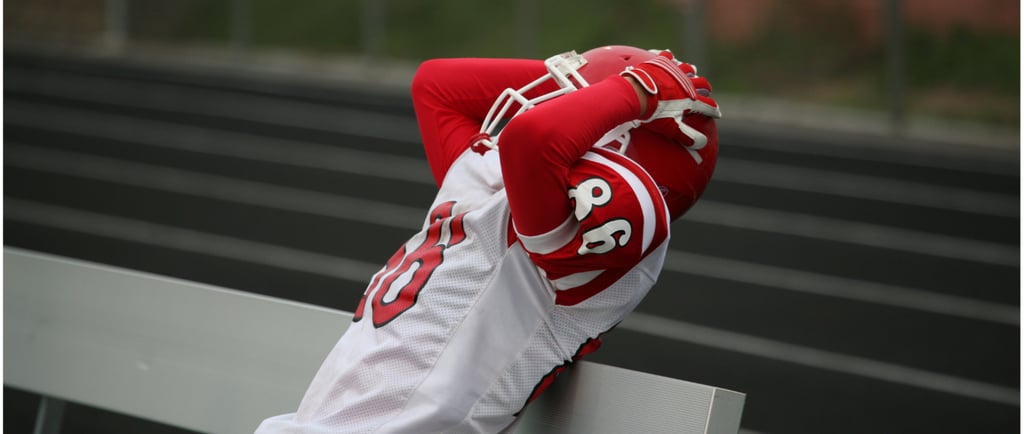Don't Be Afraid to Teach Difficult Skills
Real coaching happens when players/teams struggle with certain skills. Here's how you can embrace the challenge.
10/24/20245 min read


As a youth coach, it’s tempting to focus on the easier, more foundational aspects of the game—especially when you’re working with players who are just starting or struggling with basic concepts. However, teaching difficult skills is not only essential for a player’s long-term growth, but it’s also a critical component in building a well-rounded, confident athlete. Whether you’re coaching a recreational soccer team or a more competitive basketball squad, you shouldn’t shy away from tackling challenging skills, even if they seem daunting at first.
Why Teaching Difficult Skills Matters
Youth sports are about more than just winning or mastering the basics. They are an opportunity for children to grow, learn, and challenge themselves. While mastering fundamentals like passing or dribbling is crucial, so is developing more advanced skills that push players out of their comfort zones. Here’s why focusing on difficult skills is a game-changer for youth athletes:
1. Promotes Long-Term Development
Difficult skills—whether it’s hitting a curveball in baseball, learning advanced footwork in soccer, or mastering a jump shot in basketball—are often what separate good athletes from great ones. Early introduction to these challenging techniques lays the groundwork for long-term development.
Research published by the International Journal of Sports Science & Coaching emphasizes that early exposure to a variety of skills in sports enhances long-term performance. By teaching difficult skills, you’re preparing your players for more complex challenges as they grow older and progress through different levels of competition.
2. Builds Resilience and Mental Toughness
Learning new, challenging skills often comes with frustration and failure, but it also offers a golden opportunity to teach players how to handle adversity. Youth athletes who are regularly challenged develop resilience, which helps them tackle difficult tasks both on and off the field.
According to sports psychologist Dr. Jim Taylor, learning to manage frustration and overcome challenges in sports helps young athletes build mental toughness—an essential trait for success in both athletics and life. Teaching difficult skills encourages this process, showing players that improvement comes with persistence and hard work.
3. Keeps Players Engaged and Motivated
Children often become bored or disengaged when they are constantly repeating the same drills or not being challenged enough. Teaching more advanced skills offers something new and exciting to strive for, keeping players motivated and eager to improve.
The Positive Coaching Alliance highlights that athletes thrive when they are presented with opportunities to learn and grow. By introducing more advanced skills, you’re fostering an environment where players feel engaged and excited to take on new challenges.
Tips for Teaching Difficult Skills to Youth Athletes
Introducing difficult skills can feel intimidating, especially if your players are still mastering the basics. However, with the right approach, teaching advanced skills can be a rewarding experience for both you and your athletes. Here are some practical strategies to help you along the way:
1. Break Down Skills into Small Steps
One of the most effective ways to teach a difficult skill is to break it down into smaller, more manageable steps. By focusing on one aspect of the skill at a time, players can gradually build their confidence and competence.
Example: In basketball, instead of teaching a step-back jump shot in one go, start by focusing on footwork. Once the players feel comfortable with that, move on to hand positioning, and finally, incorporate the shot itself.
Tip: Use progressive drills that allow players to master individual components before putting the whole skill together.
2. Use Positive Reinforcement
When introducing difficult skills, it’s essential to celebrate small successes and progress, even if the player hasn’t fully mastered the technique yet. Positive reinforcement builds confidence and encourages players to keep working hard.
Tip: Be specific with your praise. Instead of simply saying “good job,” point out exactly what they did well—“I love how you kept your balance on that pivot” or “Great job keeping your eye on the ball.”
Positive reinforcement can reduce frustration and help young athletes associate effort with progress, a key component in developing a growth mindset, as promoted by Dr. Carol Dweck.
3. Incorporate the Skill into Fun Games
Many youth athletes learn better when the drills are game-based or competitive. By incorporating the skill into fun activities, you can make learning more engaging and less intimidating.
Example: If you’re teaching advanced footwork in soccer, create small-sided games where players can earn points for executing specific moves or beating an opponent using their new skills.
Tip: Keep the environment supportive, and remind players that the goal is to learn, not to be perfect right away.
4. Be Patient and Provide Consistent Feedback
Patience is key when teaching difficult skills. It can take time for players to fully grasp and perform new techniques, so consistent feedback is vital for helping them improve.
Tip: Provide constructive, actionable feedback after each attempt. For example, instead of saying “That was wrong,” try “Next time, try keeping your knees bent for more balance.”
As The Journal of Applied Sport Psychology notes, players who receive consistent, constructive feedback show greater improvement over time compared to those who only get occasional advice.
5. Create a Safe Space for Mistakes
Mistakes are an inevitable part of learning difficult skills, and how coaches handle those mistakes can make all the difference. Create a culture where making errors is not only acceptable but expected.
Tip: Encourage players to view mistakes as part of the learning process. Teach them to analyze what went wrong and how to improve next time, rather than dwelling on the failure itself.
This approach aligns with the principles of growth mindset, where effort and learning from mistakes are prioritized over innate ability.
Overcoming Coach Hesitation: Why You Should Teach Difficult Skills
Some coaches may hesitate to teach difficult skills, especially with younger or less experienced athletes. You may worry that the players aren’t ready, or that introducing advanced skills too early could be counterproductive. However, avoiding these challenges can limit your players’ growth.
By introducing difficult skills early in a player’s development, you’re giving them the tools they need to become well-rounded athletes. The earlier they are exposed to these techniques, the more time they have to practice, make mistakes, and improve.
Shifting Focus from Winning to Development
It’s important to remember that youth sports are about development, not just winning games. A study from the National Alliance for Youth Sports found that over 70% of kids drop out of sports by age 13, often because they feel too much pressure to perform and not enough focus on learning.
By emphasizing skill development over immediate results, you’re creating an environment that fosters long-term growth, keeps kids engaged, and promotes a love for the game. Don’t be afraid to challenge your players with difficult skills—when taught with patience and positivity, these challenges become opportunities for growth.
Conclusion
Teaching difficult skills is an essential part of youth sports coaching. While it can be challenging, it’s a key aspect of helping young athletes grow, both physically and mentally. By breaking down skills into smaller parts, using positive reinforcement, and creating a supportive environment, coaches can guide players through the challenges of learning advanced techniques.
Embrace the opportunity to teach your players these difficult skills. In doing so, you’ll help them develop resilience, confidence, and a passion for continuous improvement—both on and off the field. Remember, the goal isn’t to perfect every skill immediately; it’s to foster a mindset of growth, perseverance, and learning that will serve your players for life.

